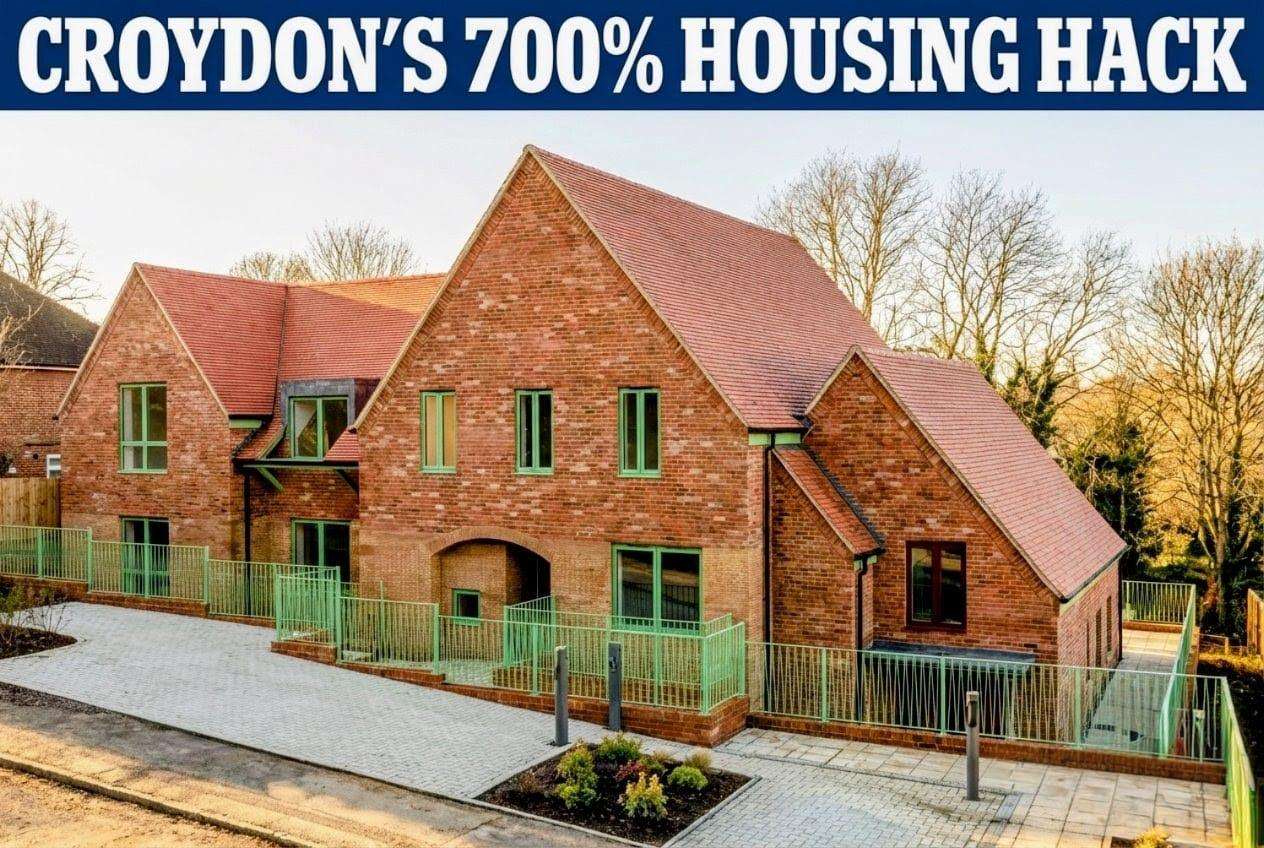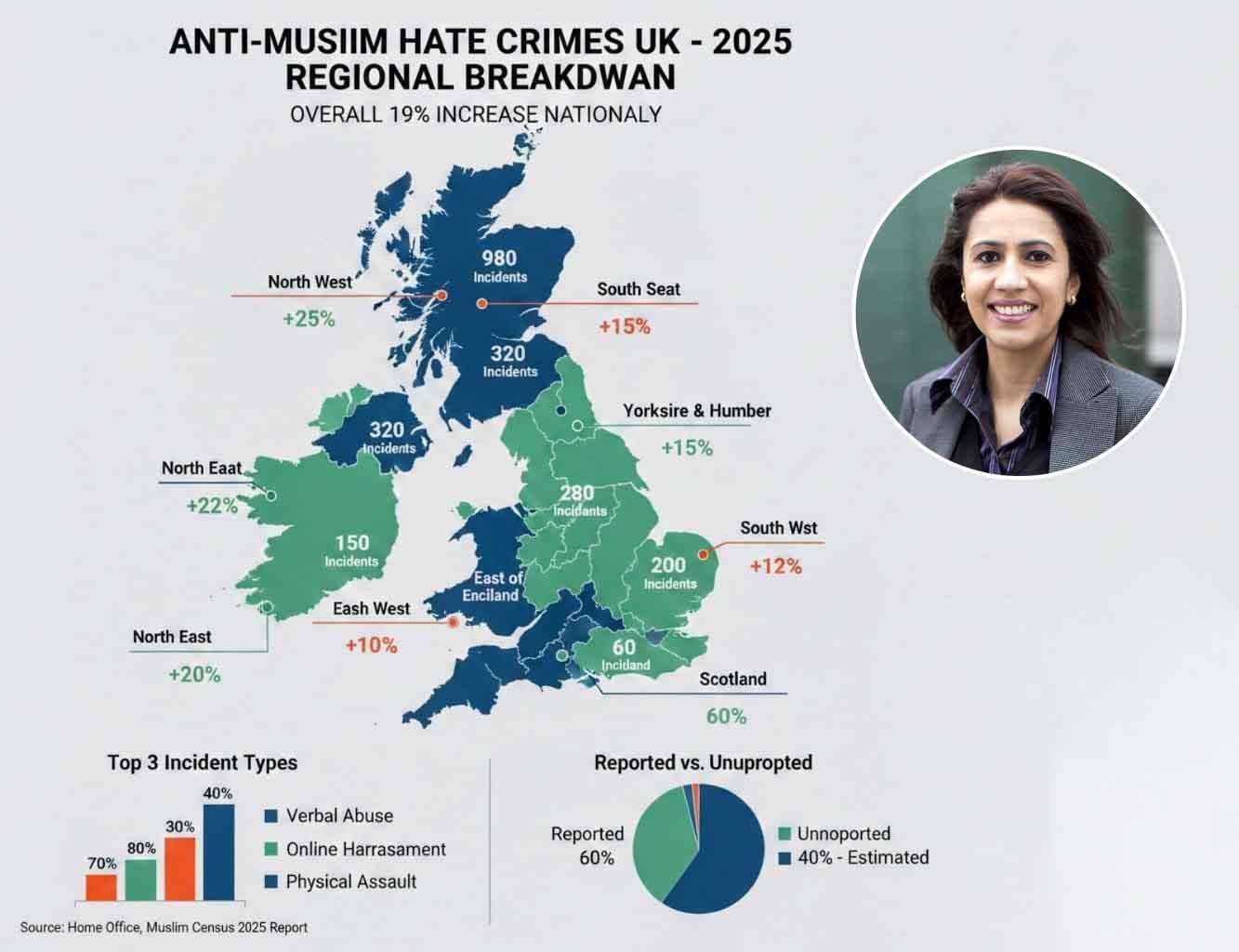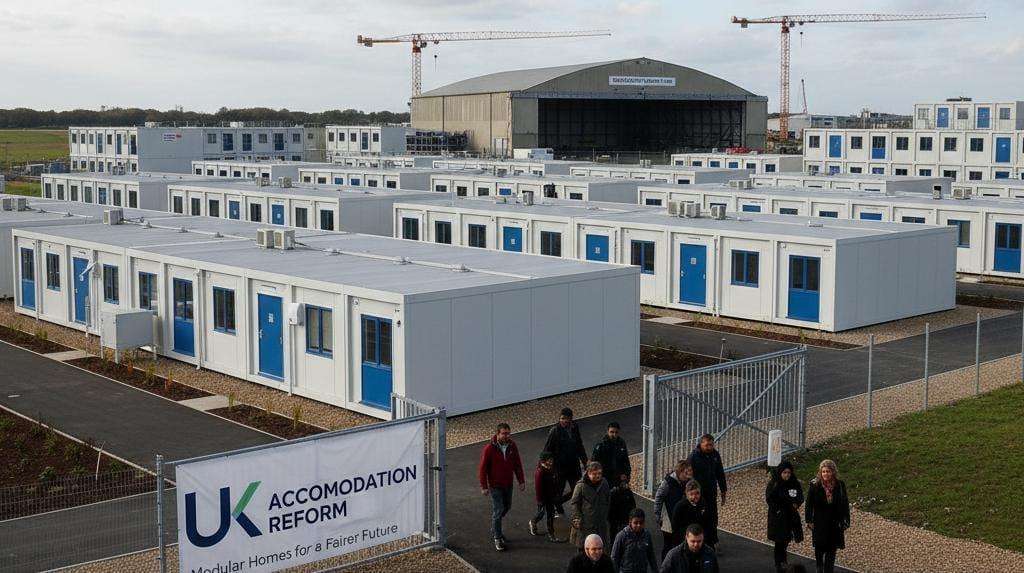The government is set to announce radical new plans "within weeks" to overhaul the chaotic and costly asylum accommodation system, moving decisively to replace expensive migrant hotels with rapid-build modular housing on former military and industrial sites.
Housing Secretary Steve Reed confirmed the new Labour government is accelerating efforts to end the use of hotels entirely, a move promised within the lifetime of the current government. This push follows a damning parliamentary report that accused the Home Office of squandering billions of pounds—with costs tripling from £4.5bn to £15.5bn on accommodation contracts—due to gross "mismanagement and incompetence."
The Accommodation Revolution
The core of the new strategy is to replace the current reliance on hotels, which costs the taxpayer millions daily, with alternative sites that can be erected quickly.
The government is actively exploring "modular forms of building," which are prefabricated, self-contained units similar to those previously used to ease prison overcrowding. These units offer basic amenities like en-suite bathrooms, a bed, and a desk, and will be rapidly deployed on large sites, including former military bases such as RAF Wethersfield, which is already using pop-up cabins to increase capacity. New, fast-track planning processes will be used to ensure these large-scale accommodation centres can be set up without delay.
In addition to these large sites, the Home Office is procuring medium-sized accommodation for 200 to 700 people, a portfolio that includes empty tower blocks, disused teaching colleges, and vacant student housing. However, MPs have warned that the government still lacks a clear and achievable plan for delivering these medium sites at the necessary scale. The accommodation provider Mears confirmed it has returned excess profits to the Home Office following the critical report on contractor spending.
A Harder Line on UK Settlement
Beyond accommodation, the Labour government is imposing significant, stricter changes to the long-term path for permanent residency, known as Indefinite Leave to Remain (ILR), for migrants and successful asylum seekers.
Home Secretary Shabana Mahmood has announced a new "contribution-based settlement model" that will fundamentally extend the wait for permanent status. The standard qualifying period for ILR will double from five years to ten years for most immigration routes, including many skilled worker categories.
Successful asylum seekers and other migrants will no longer have an automatic "golden ticket" to settlement and family reunion rights. The right to remain permanently will now have to be "earned" by proving contribution to the UK, and individuals will be required to meet new, tougher criteria, which include:
- Being in work and making National Insurance payments.
- Not claiming benefits.
- Achieving a higher standard of English language proficiency.
- Having a clean criminal record.
- Demonstrating they are "giving back" to the community.
Those who meet strict criteria may qualify for settlement earlier than ten years, while those deemed non-compliant could face longer waits or be barred from settlement entirely. The government has already suspended the family reunion route for recognised refugees and plans to roll out a new, stricter framework for family visas by the end of 2025.








.svg)


_1.jpg)